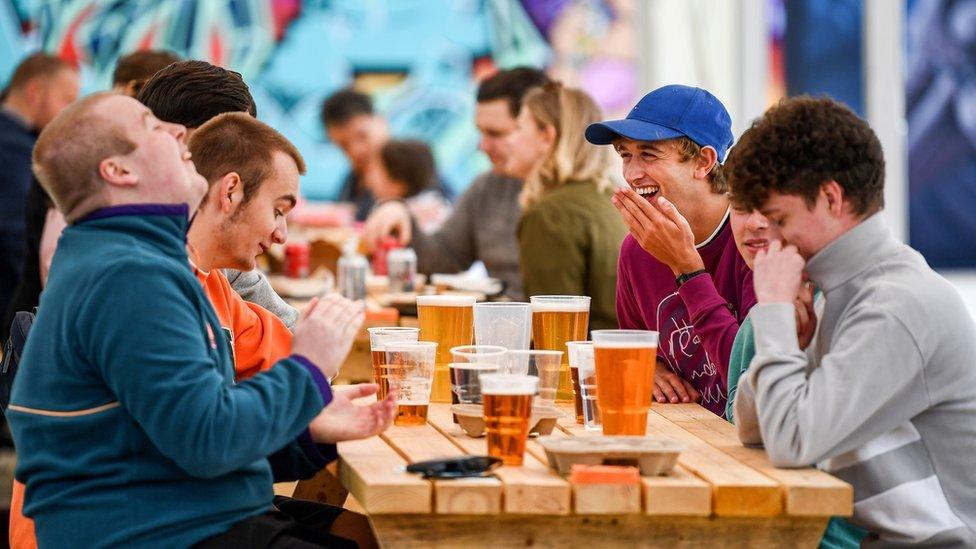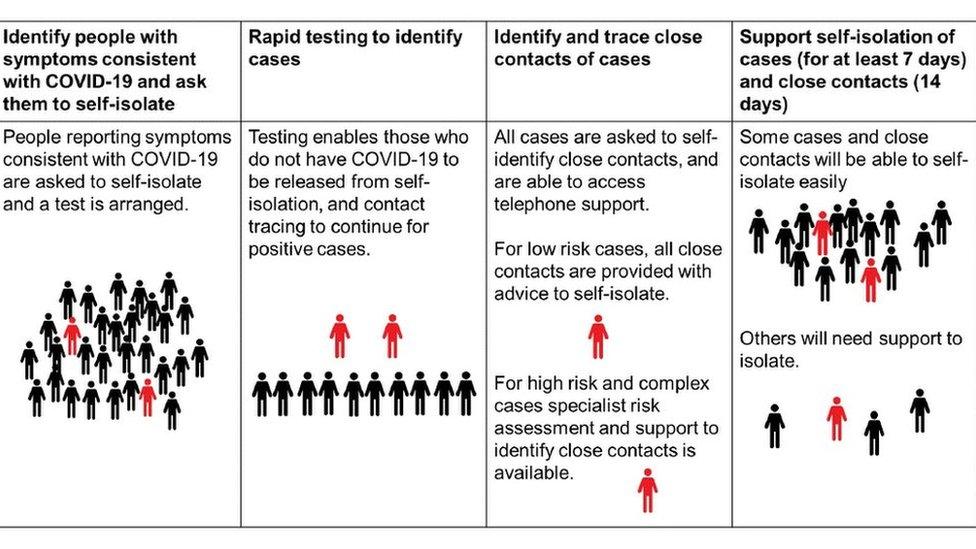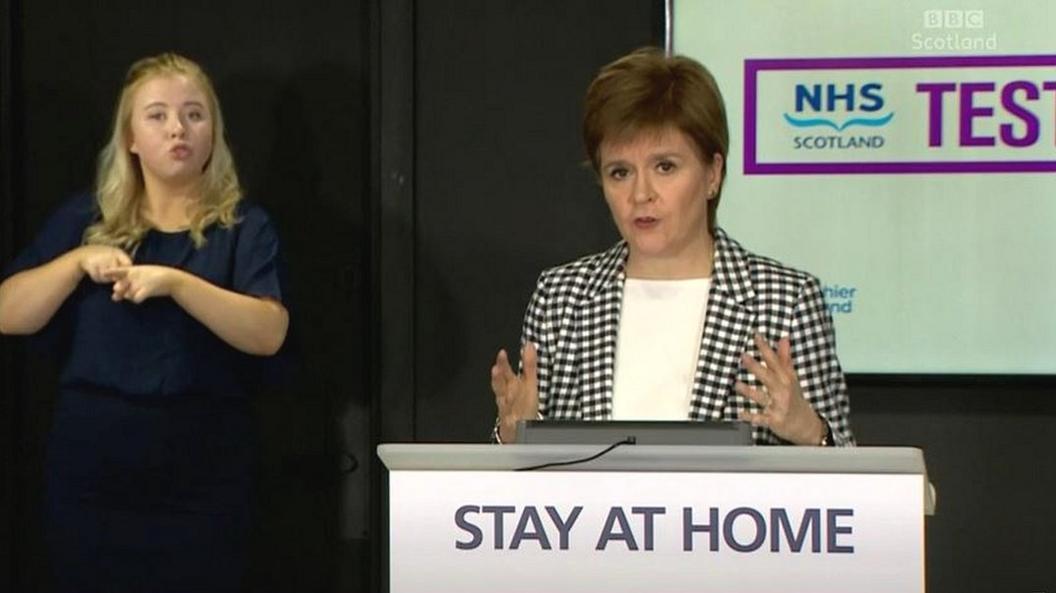Coronavirus: Withholding contact details 'putting others at risk'
- Published
Coronavirus: 'If you won't provide contact details, don't go'
The first minister has urged people to willingly provide their contact details as Scotland eases its lockdown restrictions.
From Wednesday the country's bars, restaurants and tourism sector will reopen for the first time since March.
Hairdressers and barbers will also resume trading.
But as part of the NHS Test and Protect scheme all customers will be asked to provide their name and a phone number.
Nicola Sturgeon said the importance of co-operating with staff cannot be underestimated.
Speaking during her daily media briefing, Ms Sturgeon said: "In fact, if you are not prepared to provide your contact details my message to you is pretty blunt - don't go to these places because you could be putting others at greater risk."

New "multi-sector" guidance outlining the measures was published by the Scottish government, external on Tuesday.
It states: "Collecting contact details will be voluntary, but it is important that both premises and individuals cooperate, as it will be crucial to national efforts to suppress the virus.
"This measure forms part of enabling premises to open safely, minimising the risk of the number of infections increasing, and will reduce the risk of requiring future restrictions."
It applies across the board, not just in the hospitality sector, and recommends gathering the name of each customer or visitor.
When attending as a small household group, contact details can be taken for one member.
As well as noting the size of the group, staff will also be expected to detail the date, arrival time and, where possible, the departure time.
If a customer does not have a phone number, premises may give people the option to provide a postal address or an email.

Collecting contact details is essential as part of the Test and Protect strategy
All data collected must be deleted after 21 days.
In the event of an outbreak people will be identified, contacted and advised to take steps to prevent the spread of the virus, which could include self-isolating for 14 days.
Other developments from Wednesday include the reopening of places of worship for congregational services, communal prayer and contemplation.
Restrictions will also be eased on attendance at funerals, marriage ceremonies and civil partnership registrations.
Museums, galleries, cinemas, monuments, libraries can also reopen.
Despite the easing of lockdown restrictions physical distancing must still be maintained and other measures, such as limited numbers and strict hygiene regulations will be in place.
Other personal retail services such as beauticians and tailors can re-open from 22 July.
- Published26 May 2020
